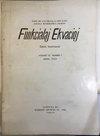周期轨道的Lotka-Volterra系统
IF 0.7
4区 数学
Q2 MATHEMATICS
引用次数: 0
摘要
研究了与物种间偏对称相互作用有关的Lotka-Volterra系统。我们选择了这个模型的某种形式提供了守恒量,使得所有的解都是周期性的除了平衡态。这个类是由一组代数条件显式给出的。如果系统有N个分量,我们分别有2n3和2n1个自由度没有线性项和有线性项。本文章由计算机程序翻译,如有差异,请以英文原文为准。
Lotka-Volterra Systems with Periodic Orbits
Lotka-Volterra systems associated with skew-symmetric interaction between species are studied. We pick up some form of this model provided with conserved quantities, which makes all the solutions to be periodic-in-time except for the equilibrium. This class is explicitly given by a set of algebraic conditions on coe‰cients. If the system takes N components, we have 2N 3 and 2N 1 degrees of freedom without and with linear terms, respectively.
求助全文
通过发布文献求助,成功后即可免费获取论文全文。
去求助
来源期刊
CiteScore
0.80
自引率
0.00%
发文量
6
审稿时长
>12 weeks
期刊介绍:
Information not localized

 求助内容:
求助内容: 应助结果提醒方式:
应助结果提醒方式:


